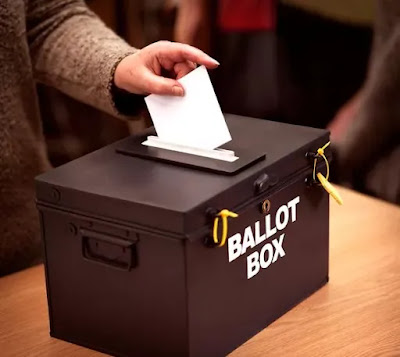Khan is right - Tory voter ID plans gag the poorest.
But it’s not just in London. Here's what we can do about it'
On New Years’ Eve, Sadiq Kahn warned that a new wave of hard right populism could see Susan Hall in London’s City Hall. And the new requirement for voter identification at the ballot box might accelerate this trend. He’s right, but it’s not just London that is affected.
The voter identification requirements deliberately make it more difficult for those who traditionally support Labour, to vote.
After the 2019 General Election, IPSOS estimated how voters voted. Their results came as no surprise,
Labour had a 43 point lead among voters aged 18-24, but the biggest change was among 35-54 year olds, who saw a three point rise in the Conservatives’ vote share and 11 point fall for Labour.
There was a gender gap, with the Conservatives ahead of Labour by 15 points among men, and by nine points among women.
Among BME voters, Labour led the Conservatives by 64% to 20%, while among white voters the Conservatives led by 48% to 29%. However, Labour’s vote share fell a similar amount since 2017 among both groups, by 9 points and 10 points respectively.
Those living in rented housing were less likely to vote Labour - 45%, down 12% on the previous election.
The Voter Identification Regulations were introduced in 2022. Government claimed there was a danger of ‘personation’, that is, the electoral crime of pretending to be someone else to use their vote. So, how many personation crimes were prosecuted in 2022? None. How many allegations of personation in polling stations? 7, and no further action was taken in any of those cases because there was no evidence or insufficient evidence.
Prior to the last local elections, the Electoral Commission led a campaign to raise awareness of the need for identification. It subsequently reported that people from disadvantaged backgrounds are less likely to have photo ID than other groups. There was a below average level of awareness particularly among those who do not identify as White British (82% aware compared with 93% for white respondents).
On top of this the young, the unemployed, those who rent social housing are all less likely to have photo ID than the average person.
The reasons are plain, people who are younger, poorer, and less likely to own a car, are less likely to have a passport or driving licence. Compared to homeowners, tenants are more likely to move house frequently making it difficult to keep their photo ID up to date, and they may need to re-register to vote each time they move.
These new restrictions could have a chilling effect on voter turnout. Some may be reluctant to vote if they know that they may be turned away at the polling station for not having the correct ID.
What can be done?
Such overt gerrymandering undermines democracy so needs to be combated at every level. Every citizen should be encouraged to vote and Party members should be discussing at all forums how this can be achieved. ID can be a passport, a full or provisional driving licence. Proof of Age Standards Scheme (PASS) cards, Blue badges, and some concessionary travel cards are also accepted. People without an existing acceptable form of voter ID can get a free Voter Authority Certificate (VAC).
Some questions:
When is the Electoral Commission starting its information campaign?
How has the budget for the campaign changed from the last general election?
How is it targeting the people its research identified were less likely to be able to vote?
What can local government do now to promote turnout amongst unrepresented groups? Lewisham Councillors explored this some years ago.
Encouraging local newspapers to cover voter issues can increase turnout.
There are multiple resources in other, third party organisations that could creatively support deliberately disenfranchised tenants and other marginalised groups. At the very least there are opportunities through consumer/tenants groups and representatives to communicate the need for ID. Company newsletters could reduce endless self promotion and give space over to sharing for example, that More imaginative approaches could link ID supplied at tenancy sign up with the ID needed to vote.
There is more that can be done still time. An active discussion and exploration throughout the Party has the potential to not only help strengthen democracy, it might also prevent a wave of dangerous populism.
An edited version of this article appeared in LabourList on 30th January 2024
https://labourlist.org/2024/01/voter-id-laws-photo-card-election-electoral-commission/
Comments
Post a Comment